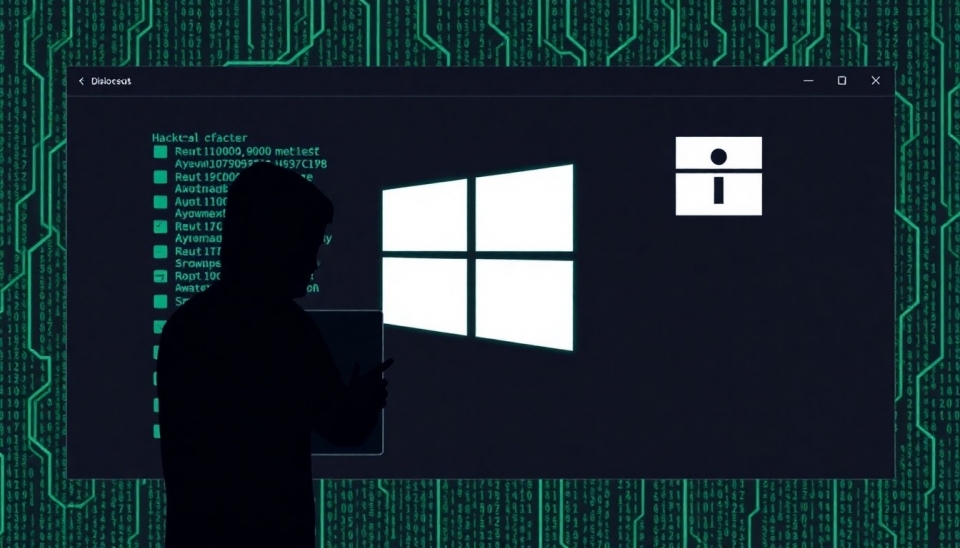
Insurance Data Breach Exposes Sensitive Info of 1.6 Million People
A recent cybersecurity incident has raised serious concerns among clients of several insurance companies due to a data breach that unveiled confidential information of approximately 1.6 million individuals. The incident occurred as a result of an attack on a system processing customer information, exposing data that could be exploited for fraudulent activities.
Continue reading
Hertz Facing Data Breach Issues Amidst AI Technology Development
Hertz, the well-known car rental service, has found itself in the spotlight due to a data breach that affected user information. This situation is made even more serious by the implementation of artificial intelligence (AI) technologies for vehicle inspection. As a result of this incident, many Hertz customers are concerned about how their personal data was compromised and what precautions the company will take to protect their information in the future.
Continue reading
Malware Threat: Hackers Steal Your Data Using USB Flash Drives
Recent reports about cybersecurity threats indicate that hackers have started using malware to steal data from USB flash drives. This has become one of the latest strategies allowing criminals to access users' personal information. According to research, fraudsters employ clever methods to activate malicious software on devices when they are connected to computers or other devices.
Continue reading
Cyberattacks on Nursing Homes: How to Protect Your Loved Ones
Recently, cyberattacks have become a significant threat to various organizations, and nursing homes are no exception. As the digitalization of elderly care facilities increases, attackers are targeting their security systems to steal personal information, health data, and even divert funds. Security experts warn that such attacks can lead to life-threatening consequences, especially for vulnerable seniors.
Continue reading
7 Simple Ways to Protect Your Credit Cards While Traveling
Traveling is incredibly exciting, but as experience shows, it can also come with certain risks, especially regarding financial security. When you head to another country or even another city, it's important to remember to protect your credit cards. An article on Fox News offers several simple yet important tips for ensuring financial safety while traveling.
Continue reading
Massive Data Breach: Hackers Steal 1.6 Million Patient Records
Recent events in the realm of information security have shaken American healthcare: hackers launched a major cyberattack on one of the leading medical organizations, resulting in the theft of over 1.6 million patient records. The incident occurred at the end of the month and has become one of the most significant data breaches in the healthcare sector in recent years.
Continue reading
Serious Vulnerabilities in Windows 10 Put Millions of Users at Risk
Recent research has unveiled serious vulnerabilities in the Windows 10 operating system, leaving millions of users at risk of cyberattacks. Security researchers from Imperva discovered several flaws in the system that can be exploited by malicious actors for unauthorized access to data. These vulnerabilities potentially affect both home and corporate users, creating an urgent need for intervention and system updates.
Continue reading
The Social Security Administration Launches Anti-Fraud Measures to Protect Pension Benefits
The Social Security Administration (SSA) has announced new anti-fraud measures aimed at protecting the pension system and ensuring fair distribution of funds to citizens eligible for social benefits. These measures are particularly relevant in light of the increasing prevalence of fraudulent schemes associated with receiving social payments.
Continue reading
How to Safeguard Your Mobile Privacy: What You Need to Know
In today's digital world, protecting personal information has become an increasingly relevant issue. Mobile device users often overlook privacy agreements and terms of use for the applications they install. However, there are several key concepts that, when understood, can help better protect users from potential threats.
Continue reading
Hackers Bypass Built-in Windows Protections
Recent news from the cybersecurity realm reveals that hackers have found a way to bypass the built-in protections of the Windows operating system. This vulnerability, discovered by researchers, allows malicious actors to circumvent security mechanisms designed to protect users from malware and attacks. It's crucial to note that such threats can jeopardize user data and information security.
Continue reading